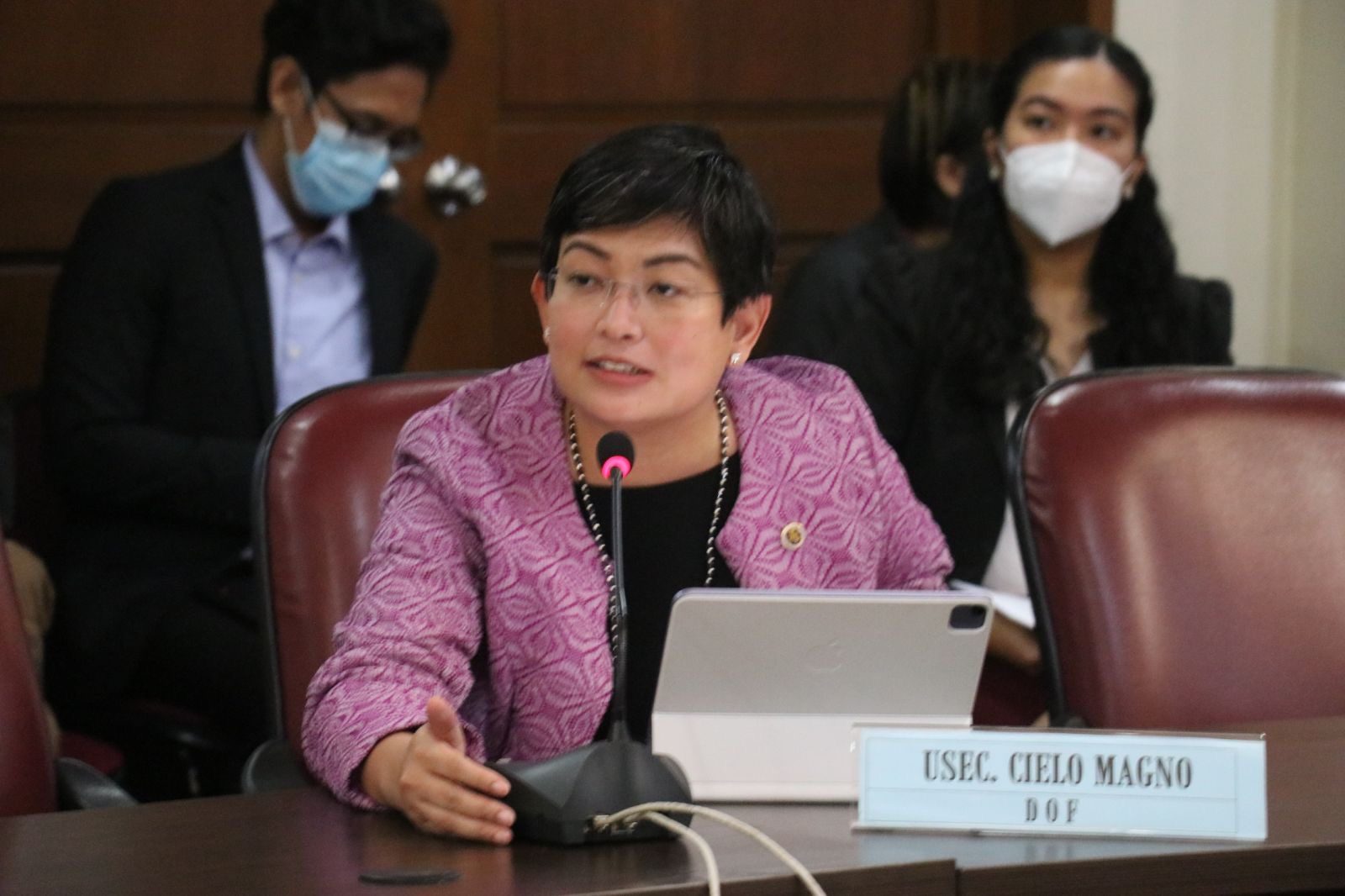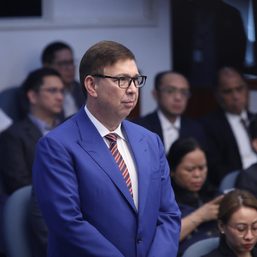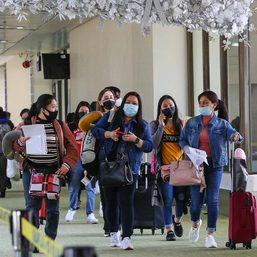SUMMARY
This is AI generated summarization, which may have errors. For context, always refer to the full article.

MANILA, Philippines – The “forced departure” of former finance undersecretary Cielo Magno – who spoke out regarding the recently-set rice price caps – has cost the Marcos administration a key reformer who was pushing for good policies, according to policy group Action for Economic Reforms (AER).
“Undersecretary Magno’s forced departure from the DOF means that the administration is jeopardizing and forgoing the opportunity to enact positive reforms,” the group said in a statement on Friday, September 8.
“The administration has lost a reformer with technical expertise who can reach out to sectors with varying persuasions – politicians, investors and businessmen, people’s organizations, academics, and the international community,” the group added.
Magno first came under fire on September 6 after she posted a photo showing the chart of the law of supply and demand with a price ceiling, alluding to President Ferdinand Marcos Jr.’s controversial decision to impose a cap on rising rice prices. The caption of her post read, “I miss teaching.”
News of Magno’s departure from her position quickly followed, with Malacañang confirming her “termination” in a sternly-worded statement.
On Saturday, September 9, Magno said in a post on X that she expected to lose her government job if she posted the chart, but this thought did not dissuade her from doing it anyway.
“I knew when I posted the supply and demand graph that my boss would receive a call from Malacañang to remove me, but I did it anyway. With how things were going, I knew it was time to go,” she said.
During her time as undersecretary, Magno worked on difficult but necessary reforms, such as reshaping the military and uniformed personnel pension regime, a decades-old program that Finance Secretary Benjamin Diokno warns could cause a “fiscal collapse” if left unaddressed. She also oversaw changes in the mining fiscal regime and led the Philippines’ bid for reentry into the Extractive Industries Transparency Initiative, a framework for the good governance of oil, gas, and mineral resources.
“Undersecretary Magno’s reform effort, in line with the President’s statements and Finance Secretary’s directives, are in the best interest of the country and of the Marcos administration,” AER said, adding that Bersamin’s accusations against the undersecretary were “baseless and unfair.”
Magno also has strong academic credentials, serving as an associate professor at the University of the Philippines School of Economics prior to her role in the government. She also has a PhD in law and public policy from the Northeastern University in Boston.
‘Uneducated and ignorant’ price caps
Agricultural economist Mahar Mangahas – former president of pollster Social Weather Stations – also criticized Marcos’ price caps on rice.
“Now, in September 2023, comes this extremely strange presidential order that prohibits rice retailers from selling their wares at a price above a stated number of pesos per kilo for a given standard. It is quite uneducated and ignorant of the law of supply and demand,” Mangahas said in his column in the Philippine Daily Inquirer.
Mangahas warned that the price cap could cause unintended negative effects, like prompting sellers to stop selling rice – a fear echoed by the Federation of Free Farmers Cooperatives.
“The true quality of rice sold will suffer. Sellers may stop selling rice openly; they may even stop selling rice altogether, and leave it as work for the government to do. Buyers will cooperate in transacting business secretly,” Mangahas said.
These concerns have not stopped the government from implementing the price cap, which could hurt rice retailers and farmers affected by the restrictions. In response, the government has promised to give small-time rice retailers subsidies and financial assistance that will cover the difference between the cost of rice and the price ceiling. (PANOORIN: Ang epekto ng rice price caps ni Marcos)
Meanwhile, Department of Trade and Industry (DTI) Secretary Fred Pascual led the distribution of financial aid to rice retailers on Saturday, September 9 at Agora Market in San Juan. Pascual was joined by Social Welfare Assistant Secretary Ada Calico, Agriculture Assistant Secretary Arnel De Mesa, and San Juan Mayor Francis Zamora.
DTI has also released its guidelines for qualified micro rice retailers to avail of cash assistance. – Rappler.com
Add a comment
How does this make you feel?


![[In This Economy] Is the Marcos government unlawfully dipping into PhilHealth funds?](https://www.rappler.com/tachyon/2024/07/marcos-government-philhealth-funds-july-12-2024.jpg?resize=257%2C257&crop=425px%2C0px%2C1080px%2C1080px)


There are no comments yet. Add your comment to start the conversation.